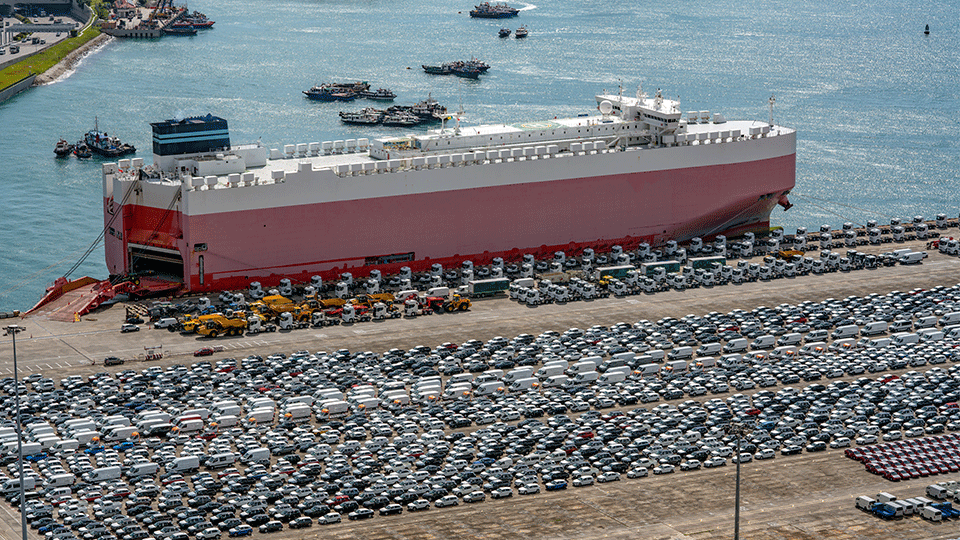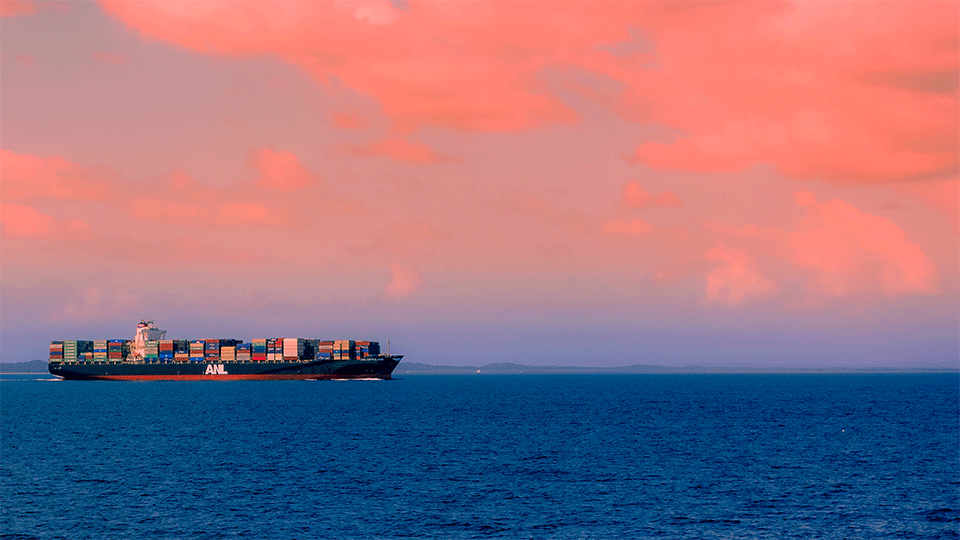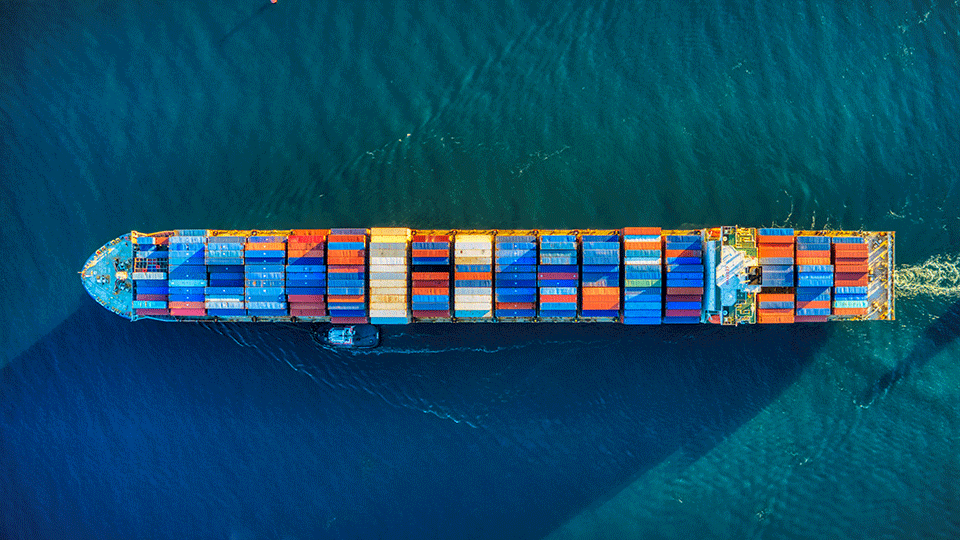We live in a big world, a world with seven continents comprising 195 countries that house more than eight billion people.
It’s also estimated that there are more than 213 million companies in the world.
213 million companies, across 195 countries, serving eight billion consumers. These numbers can be hard to wrap your head around. But they grow every year.
As a result, our world becomes increasingly interconnected; businesses rely on each other, regardless of borders, time zones, cultures and languages. International liner services are a vital piece of many international supply chains, connecting companies in one country with consumers and partners in another.
If you’re new to international freight shipping and are unfamiliar with liner service(s), you’re in the right place. Here at Anderson Trucking Service (ATS), our international division, ATS International Services Inc., has been overseeing international freight moves (as a freight forwarder) since 1992. Many of the transportation concepts our teams have executed over the years have included liner service. With the right oversight and planning, liner services may perfectly fit your transportation needs. On the other hand, liner service doesn’t make sense in every situation. Let’s talk about why.
In this article, you’ll get a rundown on international liner services in the following order:
- What is liner service?
- What kind of vessels offer liner services?
- What is the advantage of utilizing liner service?
- What is the downside of utilizing liner service?
- What is the alternative to liner service?
- How can you book liner service?
What is Liner Service?
Liner service is an international transportation service where a vessel or group of vessels call(s) seaports and travel(s) maritime routes on a set schedule. The vessels making these voyages, commonly referred to as “liners,” are counted on to adhere to their pre-determined routes and schedules. This allows shippers and transportation providers to plan according to a liner’s scheduled arrival to, and departure from, a port.
What Kind of Vessels Offer Liner Services?
Many types of marine vessels offer international liner services, sticking to a predictable schedule and route. Although you can most commonly expect container ships to be managed in this manner, roll-on/roll-off (Ro/Ro) and breakbulk vessels can also offer liner services.

What is the Advantage of Utilizing Liner Service?
Liner service is predictable — a luxury that’s enjoyed by many shippers. Since liner vessels are scheduled out for weeks in advance — and these schedules are public — companies can secure regular capacity and plan for each port call. By using liner service, businesses know when their cargo will finish its maritime journey well before they load it. This helps them make accurate commitments to vendors and customers.
Liner service is especially valuable for companies that export/import freight regularly. Pairing their production schedules with the inbound/outbound timing of their vessel, allows shippers to easily facilitate this portion of their supply chain.
What is the Disadvantage of Utilizing Liner Service?
While the set schedule of a liner service is attractive in many scenarios, this can become a hindrance on short notice. You see, these vessels have committed to sticking to their schedule in all situations — unless they're influenced by major weather systems.
As a result, if you have something to ship on short notice, a liner ship won’t be able to make adjustments to help you. And, should you miss your loading time on the front end, a liner vessel won’t stick around. Though there’s no shortage of liner vessels — particularly those that haul container cargo — in the end, missing your export date/time could cause significant delays.

What is the Alternative to Liner Service?
The main alternative to international liner service is called “tramp” or “tramper” service. Loosely defined, “tramp” vessels don’t move on a pre-set schedule or along pre-defined routes. Instead, “trampers” are routed based on demand and typically don’t carry cargo from a wide range of shippers, preferring instead to haul bulk quantities of cargo for a couple of clients.
How Much Do International Liner Services Cost?
It’s difficult to generally state — with any amount of accuracy — what your cargo’s international voyage will cost; there are just too many factors that drive these expenses. That said, liner services set non-negotiable fixed rates. The way your rates are calculated will change based on your cargo type (containerized, Ro/Ro, breakbulk). That said, expect your price to reflect the current market price per your cargo’s weight/measure or container.
Related: What Does International Shipping Cost?

How to Book Your Liner Service
Now that you have a brief overview of international liner service, including a breakdown of the main advantages and disadvantages of using these vessels, let’s talk about incorporating this into your supply chain. Like any other domestic transportation service, securing liner capacity can be done in a couple of ways.
1. Book Liner Service Through a Third Party
Liner service can be booked through a third party — like a freight forwarder or a 3PL — that has existing relationships with many ocean carriers and understands their schedules. Often, these third-party companies will handle the start-to-finish execution of your freight move — managing your shipment beyond its ocean voyage.
2. Book Liner Service Directly With a Carrier
Liner service can also be secured directly through the ocean carriers themselves. This is done by submitting a booking request through their websites or calling them directly. Taking this approach will give you more control over which carrier you use. That said, booking directly with a carrier means you will also need to arrange the other portions of your shipment’s journey which can be challenging.
Need Help Shipping Your International Cargo? Consider a Freight Forwarder
As you now know, carriers that offer a liner service are a central piece of international freight movement. And, in many instances, liner services are an excellent solution for shippers with products to move. Will they meet your needs?
If so, you may want to consider partnering with a great freight forwarder to secure space on a liner vessel, doing so will help you keep your entire transportation concept on track. A great freight forwarder will also use their expertise to connect your cargo with its best-fit liner vessel — usually, this is a carrier they’re familiar with.
Many companies, just like yours, enjoy the benefits of working with a reliable freight forwarder. To help you decide whether you should use one, check out this article outlining the pros and cons of trusting a forwarder with your cargo.
And, if you have any questions about liner services and trampers, or would simply like to learn more about how ATS International’s freight forwarding services can fit your needs, reach out to us here. We have an international shipping expert ready and waiting to help you become the supplier that always delivers for its customers.

